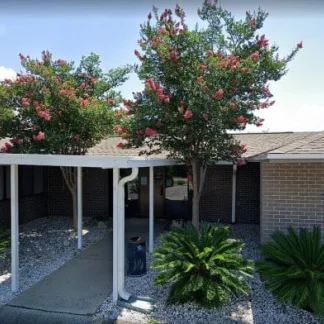Lakeview - Avalon Center
Milton, Florida, 6024 Spikes Way, 32583
Available Programs
- Adolescence program
- Adult program
- Elderly program
- Program for men
- Program for women
- Young adult program
Insurance and Financial
- Medicaid
- Private insurance
- Self-pay options
- Financial aid
- Medicare
- Military insurance
About this Facility
Lakeview Avalon Center is a co-occurring mental health and substance use disorder rehab center based in Milton, FL. It provides services to men and women through its full continuum of addiction treatment care options.
Lakeview Avalon Center is committed to delivering high quality behavioral health and addiction treatment through its comprehensive levels of care and services including:
Lakeview Center offers medication-assisted treatment for individuals struggling with opioid or alcohol dependence. Their experienced medical professionals combine FDA approved medications, such as Suboxone®, Methadone, or Vivitrol, with counseling and behavioral therapies.
The residential treatment program at Lakeview offers referrals to well established residential treatment facilities to help patients get connected with the care they need. Residential treatment can provide a comprehensive range of services, including group therapy, individual counseling, educational sessions, and relapse prevention strategies.
Lakeview Center’s transformative intensive outpatient program caters to individuals who require structured treatment while maintaining their daily routines. This program provides a comprehensive range of services, including group therapy, individual counseling, educational sessions, and relapse prevention strategies. It fosters ongoing support, and skill building, and equips individuals with tools for sustained recovery.
The supportive housing options are designed programs that provide a structured setting with compassionate staff and essential resources to assist individuals in maintaining sobriety, cultivating independent living skills, and transitioning towards a fulfilling and self sustaining lifestyle.
Lakeview Center provides specialized treatment programs tailored to specific mental health concerns. These programs address issues such as trauma, anxiety, depression, addiction, and more.
Contact us for more information: (850) 437-8900

Contact Lakeview - Avalon Center
Connect with Lakeview - Avalon Center by calling their admissions team directly.
(850) 437-8900 Website Get Directions